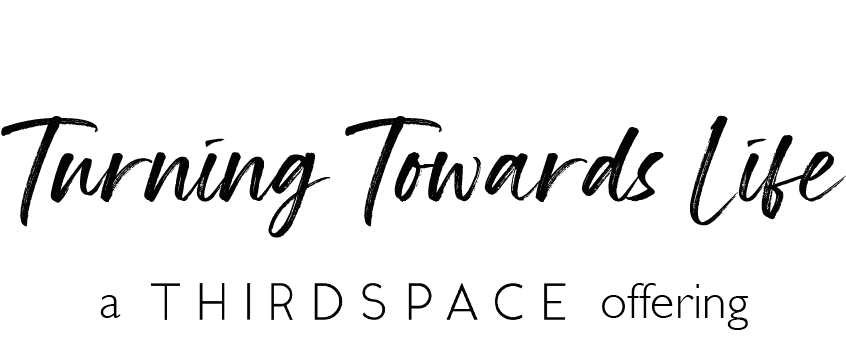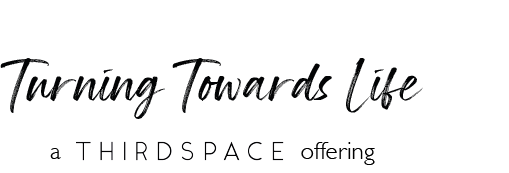Learning to Trust Life, Episode 374
We can make our lives very small by turning away from what we don't understand or what frightens us. And if we feel very separate from life, like somehow we are visitors from a far-off planet, we can easily feel as if we have nothing to stand on as we face what is most difficult about life.
In this week's conversation we begin with a source from Rainer Maria Rilke which invites us to know ourselves as not at all different from the life we are already in the middle of, and then invites us to see that what is most difficult or frightening to us is an opportunity to draw upon the inherent capacity we humans have to meet life. It's a stirring, inspiring and very kind invitation to us to meet a world that really could do with our bringing ourselves as whole-heartedly as we can.
This week's Turning Towards Life is hosted, as always, by Lizzie Winn and Justin Wise of Thirdspace.
Join Our Weekly Mailing: www.turningtowards.life/subscribe
Support Us: www.buymeacoffee.com/turningtowardslife
Here’s our source for this week:
Fear of the Inexplicable
But fear of the inexplicable has not alone impoverished the existence of the individual; the relationship between one human being and another has also been cramped by it, as though it had been lifted out of the riverbed of endless possibilities and set down in a fallow spot on the bank, to which nothing happens. For it is not inertia alone that is responsible for human relationships repeating themselves from case to case, indescribably monotonous and unrenewed: it is shyness before any sort of new, unforeseeable experience with which one does not think oneself able to cope.
But only someone who is ready for everything, who excludes nothing, not even the most enigmatical, will live the relation to another as something alive and will himself draw exhaustively from his own existence. For if we think of this existence of the individual as a larger or smaller room, it appears evident that most people learn to know only a corner of their room, a place by the window, a strip of floor on which they walk up and down. Thus they have a certain security. And yet that dangerous insecurity is so much more human which drives the prisoners in Poe's stories to feel out the shapes of their horrible dungeons and not be strangers to the unspeakable terror of their abode.
We, however, are not prisoners. No traps or snares are set about us, and there is nothing which should intimidate or worry us.We are set down in life as in the element to which we best correspond, and over and above this we have through thousands of years of accommodation become so like this life, that when we hold still we are, through a happy mimicry, scarcely to be distinguished from all that surrounds us. We have no reason to mistrust our world, for it is not against us. Has it terrors, they are our terrors; has it abuses, those abuses belong to us; when there are dangers at hand, we must try to love them. And if only we arrange our life according to that principle which counsels us that we must always hold to the difficult, then that which now still seems to us the most alien will become what we most trust and find most faithful.
How should we be able to forget those ancient myths about dragons that at the last moment turn into princesses; perhaps all the dragons of our lives are princesses who are only waiting to see us once beautiful and brave. Perhaps everything terrible is in its deepest being something helpless that wants help from us.
Rainer Maria Rilke
Photo by Jeremy Bishop on Unsplash

